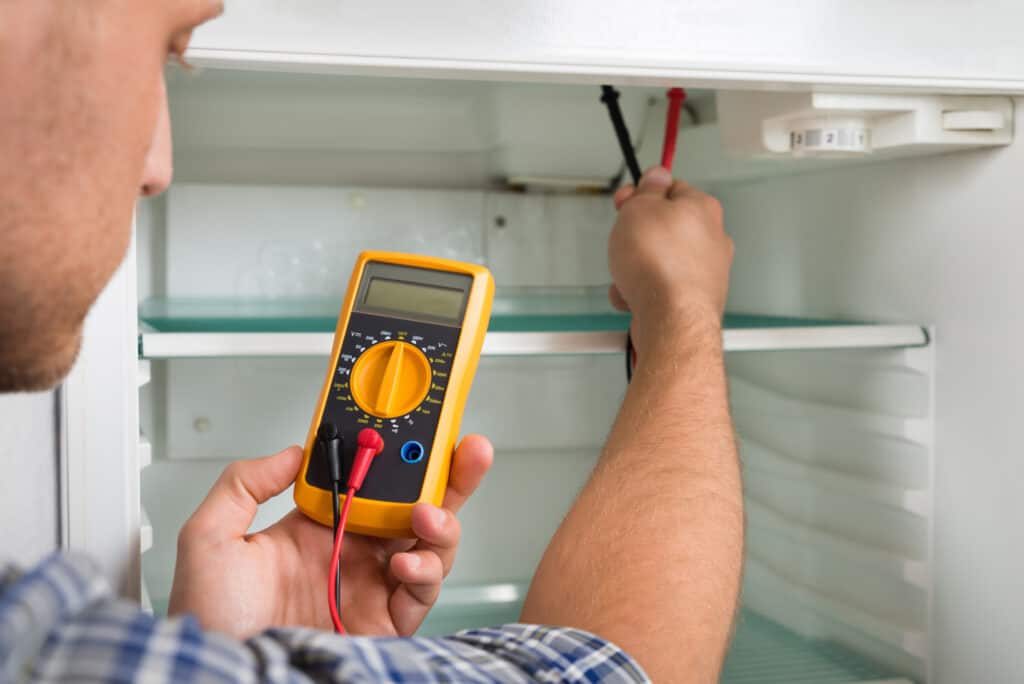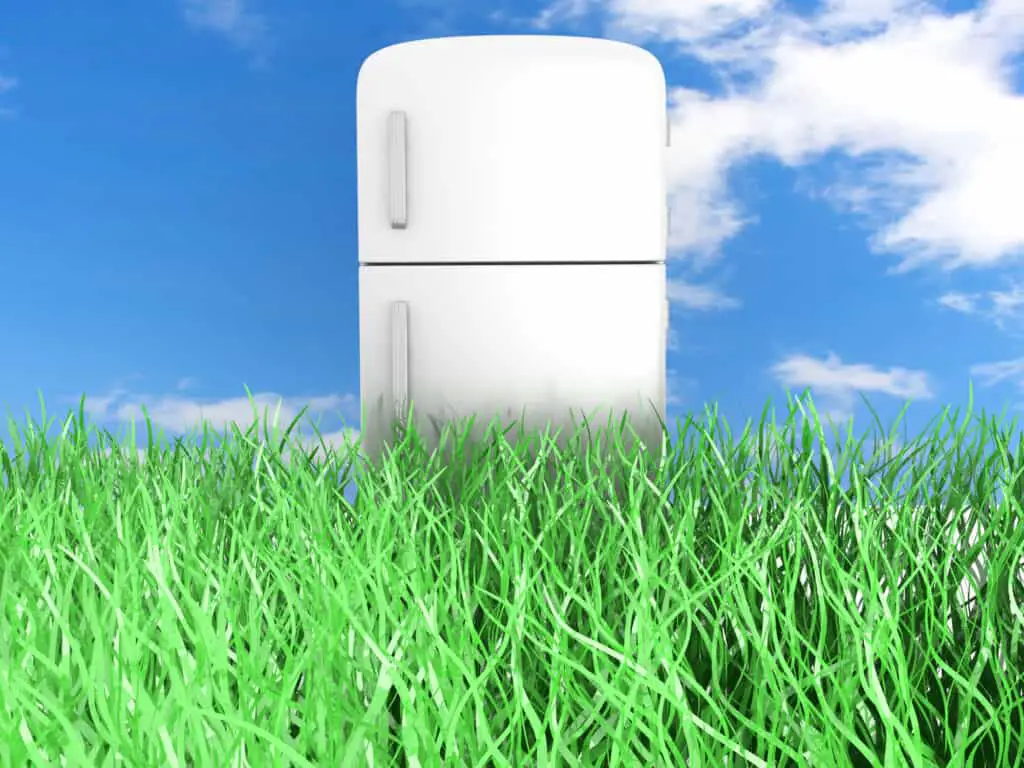When you move into your own place, a lot of people dream of being able to store things in a refrigerator outside so it is easy to access when you decide to have people over.
The trouble you may run into when you decide to do this is maintaining your fridge so it does not break down.
The last thing you want to do is invest in a fridge to put the refrigerator outside of your home and then have it breakdown and leave you in debt.
So when you get to the appliance store, there are things you are going to want to know before you make a decision. While the decision will not affect you greatly, it can still have an impact on your life.

Will You Have Problems with a Refrigerator Outside?
There are going to be some problems when you place your refrigerator outside. Now the kind of problems you will run into will very much depend on the time of year it is and what the conditions are outside.
If the weather is extremely hot, that will cause a bunch of different problems than if the weather is very cold. Also, expect there to be some issues when the seasons change from hot to cold or vice versa.
So what are some issues you should come to expect from your refrigerator outside when it comes to weather?
Problems Heat Will Cause
The term heat is referring to anything over 110 degrees in Fahrenheit. A lot of the people that make the fridges will guarantee that the fridge will properly cool in anything under that temperature.
This probably does not come as a shock to you but it is very easy to keep the contents of your fridge cold if they were cold to begin with. The biggest thing you need to avoid is preventing yourself from leaving the door open or having to open it every 5 minutes or so.
If you can avoid doing that, the only thing you will have to worry about is your electricity bills being really high cause it takes a lot of energy to run during the heat seasons.
Now if you live in an area where the heat can surpass 110 degrees Fahrenheit, you will run into a few problems with your refrigerator outside. If it gets that hot, all it means is that your fridge will have to work harder and parts will start breaking down quicker.
Higher temperatures mean the parts and gaskets will get hotter which can reduce their effectiveness of your fridge and raise the wear and tear on your fridge.
Problems the Cold Will Cause for a Refrigerator Outside
If you are sticking your refrigerator outside when it is cold outside, you probably feel great if the temperature is anywhere from 32 to 60 degrees Fahrenheit.
This will help keep your fridge from overworking and breaking down a lot quicker than it would in the heat. While that may seem like more of a positive, it does come at a cost.
Since the air moving through the compressor never correctly heats back up, the parts that make sure the freezer stays cold does not work as well as it should.
What this means is that your freezer will have a much harder time keeping the frozen food in your fridge stay frozen. While colder weather will help with this problem, the colder it is, you run the risk of your fridge freezing up and breaking down on you.
So while colder weather will help, it would be smart if you make sure your fridge is working properly when the weather turns into heat.

How Can You Help Your Refrigerator Outside?
While you will run into problems when you place your refrigerator outside, that does not mean there are no ways to keep your fridge from running smoothly and last as long as it possibly can.
There are certain things you can do to help make sure that the fridge you want to place outside does not keep breaking and causing you to spend more money than you want to.
Make Sure There is More Insulation
If you are able to do so, adding more insulation to your fridge will help lower the amount of work needed to be done to keep the parts working and kept in good condition.
You can even consider building an entire insulated, but ventilated, area for your refrigerator outside. When you are able to get more insulation for your fridge, it may even help lower the costs of running your fridge.
If you do not have to continue to buy new parts for your fridge, that means you are able to keep more money in your pocket.
You do not want to have to constantly buy new parts and replace things. All that leads to is your outdoor fridge being more of a headache than you actually want it to be.
Make Sure Your Fridge is Out of the Sunlight
This is a pretty easy thing you can do to make sure that your outdoor fridge lasts long and runs as smoothly as it possibly can. If your fridge is on a covered porch or screened patio, all you have to do is make sure that your fridge is underneath the area that is covered from the sun.
If your patio or deck is not covered, it would be wise for you to move it to an area that is always in the shade. When you do this, you are stopping your fridge from overheating or rusting.
As stated above, if you overheat your fridge, it will break down a lot quicker than it would normally. As it pertains to rust, that is the last thing you want in your fridge.
While it is not deadly, you do not want that touching your food or beverages.
Keep Your Fridge Away from the Elements
While this is very much connected to the last point, it is important for you to protect your fridge from snow, hail, or rain. You are just asking for it to break down so much faster than it normally would.
While it may seem like a major pain in the butt, it will pay huge dividends for both your fridge and your bank account.
So even though it may cost you an extra few bucks, go out and buy that cover, it helps keep your fridge alive and well for as long as possible.
Final Thoughts
In the end, while having a fridge outside is something you and a lot of other people like, it will require work and maintenance to keep it up and running.
So yes, it is okay to have a refrigerator outside, but it is a much more complicated situation than one would think. Just like anything, you need to stay on top of it and make sure you keep it from breaking.
When you are considering buying a fridge for outside use, take into consideration where you are going to place it, what the climate is like where you live, and if you have the capabilities to maintain it properly.
So make sure you are prepared, but once you are, get out there and have a good time.
Continue Reading:
